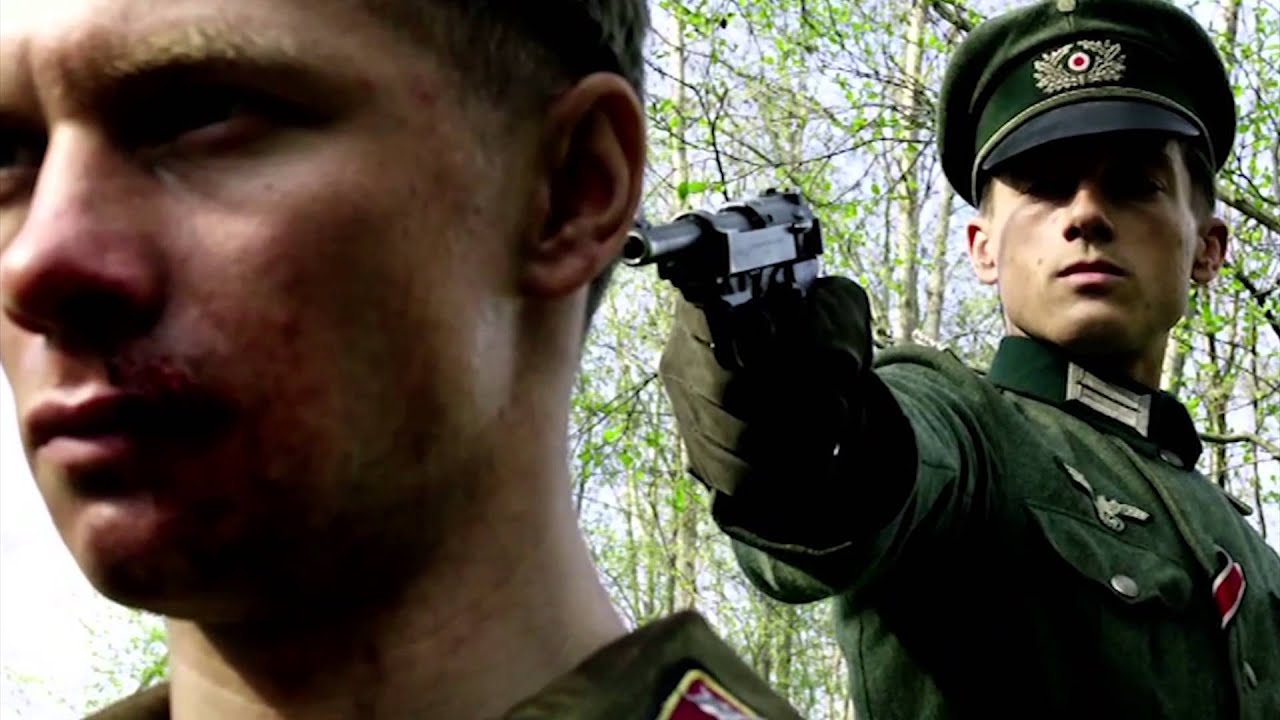By Chlotrudis Independent Film Society
Rating: 3.5 cats
Director: Phillip Kadelbach
Starring: Katharina Schüttler | Ludwig Trepte | Miriam Stein | Tom Schilling | Volker Bruch

Original language title: Unsere Mütter, Unsere Väter
Country: germany
Year: 2014
Running time: 270
IMDB: http://www.imdb.com/title/tt1883092/combined
Kyle says: “GENERATION WAR is a three-part German television series which is being shown as two movies in the U.S. before complete showings on cable television. Its origin as an attempt to continue the national discussion about German complicity and guilt in the horrors of World War II attracted some seven million viewers and considerable debate, but the work will likely receive a different reception in the U.S., since politics and genocide are largely absent from the screenplay. The tagline is, ‘What happens when the country you love betrays everything you believe?’ This is not a story about the Holocaust, for which audience members are directed to the film HANNAH ARENDT (2013), and the essential documentaries by Claude Lanzmann — SHOAH (1985), A VISITOR FROM THE LIVING (1999), SOBIBOR, 14 OCTOBER 1943, 4 P.M. (2001), THE KARSKI REPORT (2010), and THE LAST OF THE UNJUST (2013). It is a rare attempt to tell a story about World War II from the German standpoint, similar in some ways to DAS BOOT (1985), which has a similar running time.
“The story commences in 1941 with high spirits, drinking and dancing, among three young men and two young women: Wehrmacht brothers Wilhelm (Volker Bruch) and Friedhelm (Tom Schilling), the former manly, solid and dutiful, the latter sensitive, bookish and despised by his father; Viktor (Ludwig Trepte), a handsome tailor whose Jewishness is not considered a problem in liberal Berlin, especially by his parents; his girlfriend Greta (Katharina Schüttler), who wants to be a famous chanteuse like Marlene Dietrich; and Charlotte (Miriam Stein), a young nurse with high ideals. The atmosphere in the Berlin bar is carefree, because Hitler has announced that the war will be over before Christmas. Thereafter the focus shifts to the Eastern Front, where we know very well what will happen to the German army as they face millions of Russians in thrall to Stalin, in love with Mother Russia and inured to Russian winters. The first line of the movie, during a Russian attack on the Germans, is: ‘They say that everything around you goes quiet at the moment of death.’
“The time elapsed between June 1941 and 1945 covers many events we know about, some we can imagine or expect given the five principals, and others that are in differing degrees surprising or shocking. The sensitive Friedhelm is corrupted by heroism, nurse Charlotte betrays a suspected Jewess, thereby denying her hospital much needed medical expertise, and Greta embarks on a disastrous affair with a despicable S.S. officer, first in order to secure a passport for her beloved Viktor, then to advance her career. The most intriguing character is Viktor, who is largely a passive observer at the beginning, but gradually comes to understand the horrors awaiting Jews; after escape from a train bound for Auschwitz, he becomes a dedicated Polish partisan. Observations on the war among these characters range from ‘The war will bring out the worst in us!’ to ‘Whatever God has in store for us, it won’t be victory.’ The casual execution of a Russian prisoner who will not or cannot divulge information is justified by an officer with ‘This isn’t a normal war — This is a philosophy.’
“That the writing reflects both our knowledge of where events are heading and the guilt experienced by successive generations of Germans whose responses ranged from denial through shame does not lessen the narrative impact of GENERATION WAR, which is vastly superior to the domestic BAND OF BROTHERS, including details of battle scenes with bullets whizzing by. Importantly, the idea that only the S.S. and Gestapo were complicit in vast crimes against humanity has finally been laid to rest. People behave in a variety of ways during wars, often shameful and degrading, sometimes generous even selfless. What is strange about these characters is how removed they seem from the realities of National Socialism. A brief mention of a record banned by Goebbels as ‘degenerate nigger music’ brings to mind the young Hamburg jazz enthusiasts in SWING KIDS (1993), one of whom is beaten to a pulp by members of the Hitler Youth. This is reminiscent of a real-life incident involving famous Hollywood composer Franz Waxman, a young jazz musician seen playing piano in THE BLUE ANGEL (1930), starring Marlene Dietrich. The duplicitous S.S. officer survives World War II and De-Nazification because his organizational skills are needed by the new Germany. The improbable ending has the surviving members of the group of friends reuniting in the ruins of the bar where they had been celebrating four years earlier. 80 years after Hitler’s ruinous rise to power as Chancellor of Germany, GENERATION WAR is worthwhile for its unique creation of details and experiences largely absent from the body of World War II cinema. 3.5 cats
“Seen Friday, January 31, 2014, Film Forum, New York.”
